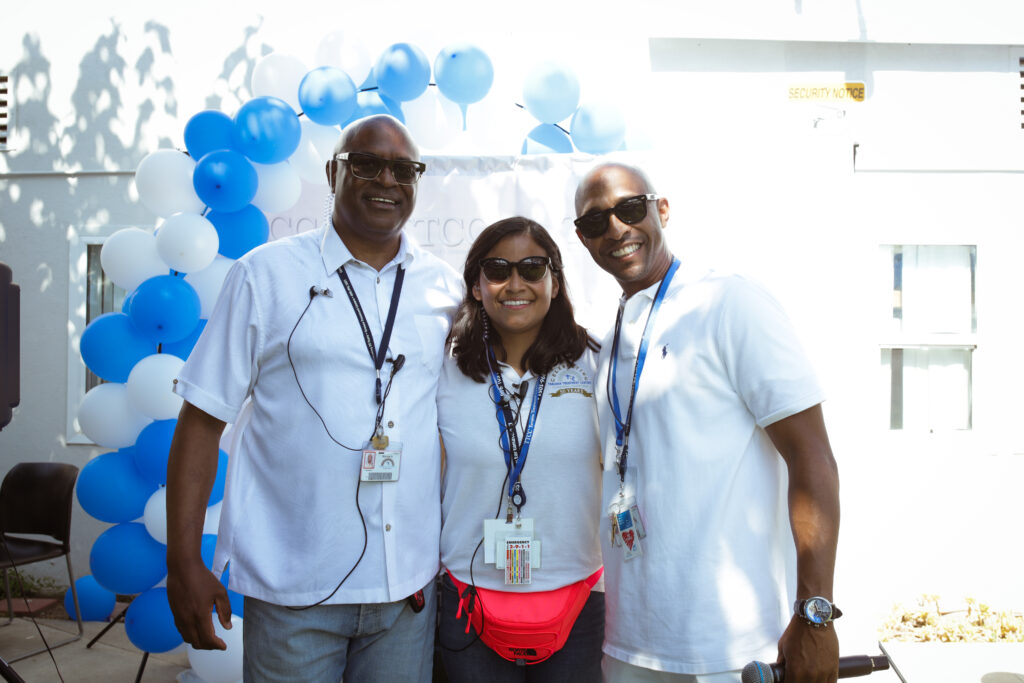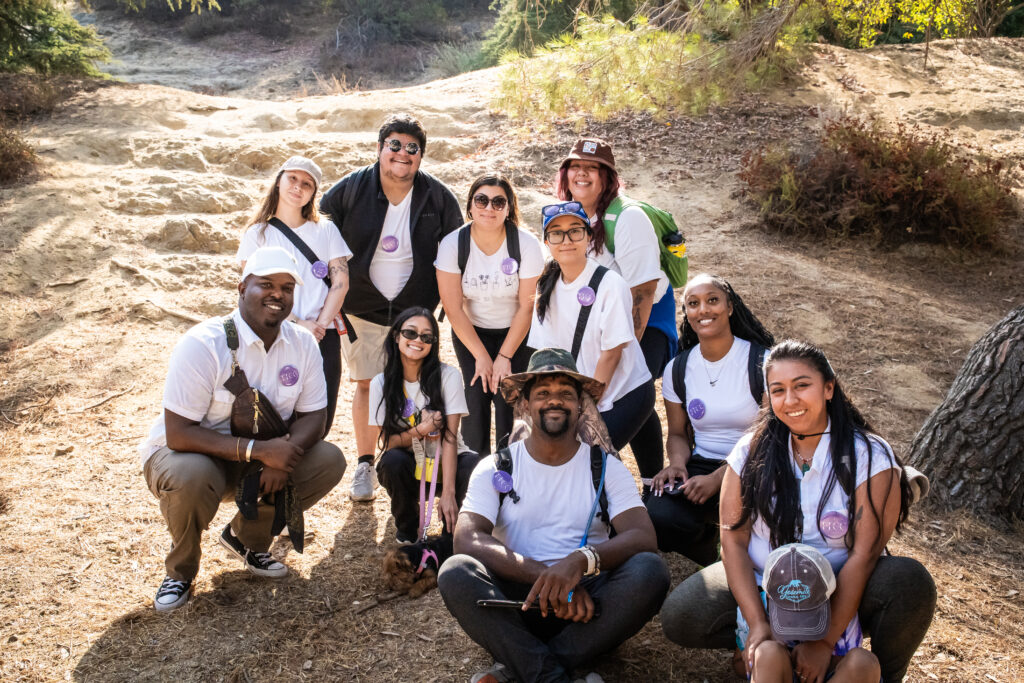What does recovery mean? For some it means a second chance, renewed hope, and finding themselves again. According to the Substance Abuse and Mental Health Services Administration (SAMHSA), recovery is defined as “a process of change through which individuals improve their health and wellness, live a self-directed life, and strive to reach their full potential.” (Page 3) Everyone on the path to recovery has their own definition and purpose to a second chance at life. Many of our own students come to Tarzana Treatment Centers College with their personal recovery story, ready to make a difference for someone else. Recovery is not a one-size-fits-all process, and with the increasing rates of substance use overdoses, the conversation around healing through community is more urgent than ever.
The Importance of Community in Recovery
Recovery is not just a one-person job; it takes a community to support folks seeking recovery. When an individual enters the journey to healing, they are first met with a load of people who will help them through treatment from nurses, counselors, therapists, social workers, and more depending on the needs. All of these essential workers come together to help folks find their recovery. Post treatment, most individuals maintain relationships with key community members that will help keep them accountable and further remove the stigma surrounding substance use. For some that looks like going to Substance Use Anonymous groups, having a sponsor(s), family members to check in with, finding new hobbies, and even starting their own initiatives to help others in the mission of recovery. As a community we can foster resilience and help break the stigma of substance use. We all have a role to play in helping some of our most vulnerable groups and you can start by just researching ways you can contribute to the greater cause.
Life After Treatment

TTC College staff, Warren Spurlock, Justin Lawrence, and recent graduated intern Monica Castro-Prince saw a gap in resources post-treatment among our residents. They knew that recovery was not achieved in just three months of treatment, but rather a life-long journey. Through this desire to serve our community, they launched Life After Treatment in August of 2023. On August 8th, 2024, TTC College hosted our second annual Life After Treatment event at one of our residential treatment centers here in Tarzana, CA. We brought over 20 organizations to come serve our residents in treatment providing services like expungements, housing stability, food security, job opportunities, healthcare, and more from major non-profit organizations like Homeboy Industries, ACE4Change, to name a few. We were able to serve over 150 of our Tarzana residents and invited residents from our Long Beach and Antelope Valley location. Life After Treatment is meant to provide services and resources so that our clients can achieve long-term recovery after they leave, because we know there are still barriers that need to be addressed, overcome, and destroyed
Barriers to Recovery and How to Overcome Them
For recovery to be possible, our community needs to be well-informed of the barriers that may come when a person is seeking recovery. One prominent barrier is the lack of resources to help those in need. For someone who is seeking recovery, they may not know where to start on their journey but that is where we come in as a community! One way we can stay informed of our resources is through education. Many non-profit organizations offer free training on overdose prevention and how to use Narcan. For those of us still learning, Narcan, or Naloxone, is a nasal spray used to quickly reverse the effects of opioid overdoses while folks call for help. This is a lifesaving medication that the FDA (Food and Drug Administration) approved to have available over the counter as of March 29th, 2023. While this is a huge milestone, allowing many to have access to Narcan, it still creates a barrier for the communities that need it most. If a person doesn’t have money, or health insurance, maybe they are houseless, how are we expecting them to get access to Narcan? This is where we come in. Many of us are teachers, librarians, customer service employees, healthcare workers and each of us can be trained in how to use Narcan so we can potentially save someone’s life. Each of us can support and advocate for local and state policies that can potentially save lives.

Overdose Poisoning Awareness and Remembrance Walk
On September 14th, we were invited to attend the Overdose Poisoning Awareness and Remembrance Walk hosted by Pueblo y Salud to honor loved ones lost to overdose and commemorate their memory. We took time to honor loved ones who have passed and talked about ways we can connect with each other to continue the mission of ending substance use. As our team walked the trail, we were reminded of how precious life is and how it takes a village to keep each other safe. One impactful moment was when our Chief Academic Officer, Dr. James B. Golden, said “In a system that is not meant for healing, we have to heal each other.” As a community we can show up for each other in ways that are lifesaving, but it starts with you!
If you feel a calling to the greater mission of ending overdoses and helping others in their recovery journey, apply today to TTC College and learn more about our Peer Support Specialization Program and our Substance Use Counseling Program.
If you’d like to learn more about how you can bring Narcan and Overdose Prevention training to your community, school, or workplace, email us at ttcc@tarzanatc.org to learn more.
Additional Resources for Information:
- SAMHSA (Substance Abuse and Mental Health Services Administration)
- Provides extensive resources on recovery, treatment, and mental health: www.samhsa.gov
- National Institute on Drug Abuse (NIDA)
- Offers research and educational resources on substance use and recovery: www.drugabuse.gov
- National Alliance on Mental Illness (NAMI)
- Focuses on mental health recovery: www.nami.org
References
Commissioner, O. of the. (n.d.). FDA Approves First Over-the-Counter Naloxone Nasal Spray. U.S. Food and Drug Administration. https://www.fda.gov/news-events/press-announcements/fda-approves-first-over-counter-naloxone-nasal-spray
SAMHSA’s Working Definition of Recovery. SAMHSA. (n.d.). https://store.samhsa.gov/sites/default/files/pep12-recdef.pdf


